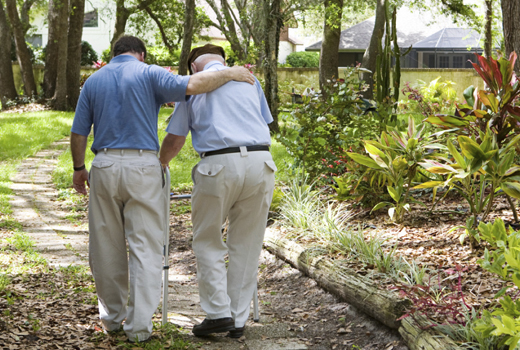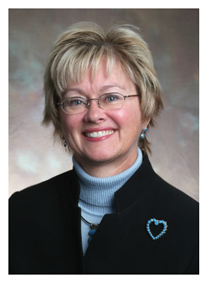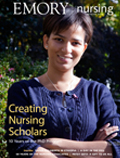New research tops $14 million

Since fall 2009, the School of Nursing has garnered more than $6 million from the National Institute for Nursing Research (NINR) and the CDC for studies related to caregiver stress, heart failure and diabetes, and environmental health. With the addition of the $8.16 million grant from the Bill & Melinda Gates Foundation, funding for new research stands at more than $14 million and includes the following projects.
Reducing caregiver stress
A three-part study led by Georgia Cancer Coalition scholar Susan Bauer-Wu seeks to improve caregivers’ abilities to cope with stress and its associated health effects, especially increased risk of heart disease.
Funded by a $3.5 million grant from NINR, the five-year project is one of only a few nationwide to explore self-care interventions for family members caring for loved ones with chronic disease.
Nurse and physician researchers will test two interventions—psychoeducation and physical exercise, individually and in combination—in two groups of caregivers. Through education, family caregivers will develop the knowledge, skills, and attitude to care effectively for their loved ones. Through physical exercise, they will learn aerobic and resistance techniques they can use at home to relieve stress.
Sandra Dunbar, Charles Howard Candler Professor of Cardiovascular Nursing (pictured below), will test the interventions among caregivers of heart failure patients, while Ken Hepburn, associate dean for research and director of graduate studies, will work with caregivers of dementia patients. The dementia project will focus primarily on African-Americans, a group that is particularly vulnerable to heart disease.
For the third part of the study, researchers will combine data from both projects to look at differences and similarities in how the interventions work.
Self-care for heart failure patients with diabetes
 Heart failure patients must learn to care for themselves in a number of ways: Reducing sodium in their diet, following a strict medication regimen, monitoring their weight, and exercising more. These tasks can prove even more daunting for heart failure patients with diabetes.
Heart failure patients must learn to care for themselves in a number of ways: Reducing sodium in their diet, following a strict medication regimen, monitoring their weight, and exercising more. These tasks can prove even more daunting for heart failure patients with diabetes.
Supported by a three-year, $1.3 million grant from NINR, Dunbar will test an intervention that combines traditional counseling before discharge with a follow-up visit by a nurse at patients’ homes.
“We hope that making self-care easier and more understandable will help patients do a better job of managing their illnesses and avoid being readmitted to the hospital,” says Dunbar.
She will work with health economist Steven Culler in the Rollins School of Public Health to assess the intervention’s effect on re-hospitalization admission rates, which are significantly higher for this patient population, and on their overall feelings of well-being.
Additionally, Dunbar received a $425,000 NINR grant to assess patients’ perspectives on living with heart failure and diabetes. She will use the data to design and test a nursing intervention to improve outcomes.
Risk perception among pregnant farmworkers
 How well do pregnant farm workers understand the risks associated with exposure to heat, chemicals, and pesticides and ergonomic challenges such as standing for hours at a time?
How well do pregnant farm workers understand the risks associated with exposure to heat, chemicals, and pesticides and ergonomic challenges such as standing for hours at a time?
Dean Linda McCauley received a four-year, $1.2 million CDC grant to gauge how women who work for nurseries and ferneries in Florida view these risks.
McCauley’s team will develop educational materials appropriate in culture and language that emphasize health promotion and protective behaviors during pregnancy. Maureen Kelley, clinical associate professor, will devise strategies to improve farmworkers’ access to prenatal care.
Their study is part of an NIH/CDC initiative of Research to Action, which brings scientists together with community partners in environmental and occupational health. McCauley’s study involves researchers from the universities of Florida and Cincinnati and members of the Farmworker Association of Florida and the Farmworker Health and Safety Institute of New Jersey to improve occupational health for women and to ensure access to prenatal care.


